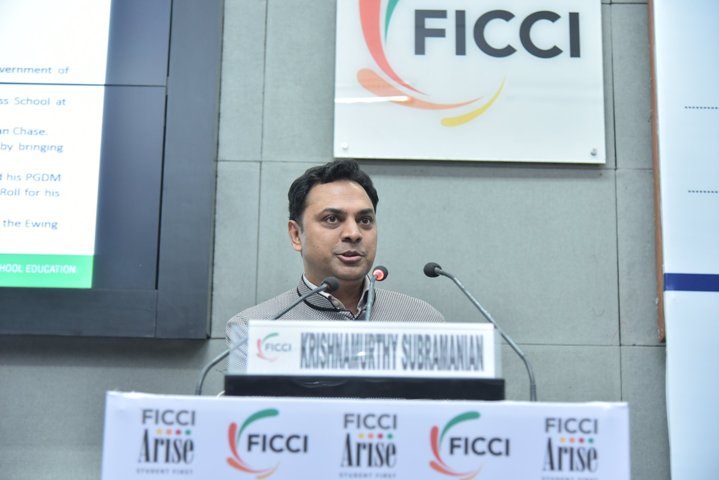Investment key driver for sustained growth, reforms: Chief Economic Advisor
Speaking at ‘FICCI ARISE Conference 2019’ on the theme ‘Future Ready Learners and Schools’, Dr. Subramanian said that in order to attract more investments, the tax rate becomes extremely crucial, especially on the corporate side.

- Country:
- India
Dr. Krishnamurthy Subramanian, Chief Economic Advisor, Government of India, today said that investment is the key driver for sustained growth and reforms that we are seeing today is an articulation of a cogent vision that essentially has investment, and especially private investment, at its heart.
Speaking at ‘FICCI ARISE Conference 2019’ on the theme ‘Future Ready Learners and Schools’, Dr. Subramanian said that in order to attract more investments, the tax rate becomes extremely crucial, especially on the corporate side. He said that tax rate cuts are necessary but not necessarily sufficient conditions for attracting investments because investors look at after-tax returns.
“Now India is as competitive for investment as any other economy. India is a much larger economy as it has a much bigger labor force and much bigger market,” said Dr. Subramanian.
He added that the disinvestment of a profitable company like BPCL reflects a change in the way the government views disinvestment and privatization. “The private sector does a far better job of taking the savings of the economy and plowing it back in the form of taxes and job creation. The public sector can then use it to serve and do welfare,” said Dr. Subramanian.
The Chief Economic Advisor also talked about three As Anecdotes; Aggregates and Averages, adding, “Good policy itself comes from good thinking and rely on aggregates and averages.”
Highlighting the importance of human capital in education, Dr. Subramanian stressed the need for more research and urged the corporate sector to invest more in research. “It is important for the corporate sector to understand this intrinsic feature of research and encourage and invest in it,” he said.
Mr. T V Mohandas Pai, Chairman, Manipal Global Education, said, “Corporates and industrialists need to give 2% of their money towards the development of research and pedagogy in the country.” He added that the government has three primary roles of laying out policy, effective regulation and provide services.
“Empower the students by funding them to give them the power of choice to select schools that they want to study in,” said Mr. Pai.
ALSO READ
Austria's Economy on Path to Recovery Amidst Challenges
Swarna Andhra Pradesh Vision 2047: Transforming Education and Economy
Key Developments in Politics, Economy, and International Relations
Building Vietnam’s High-Income Economy: Opportunities in Trade, Skills, and Sustainability
Uttarakhand's Homestays: Boosting Economy and Celebrating Culture










